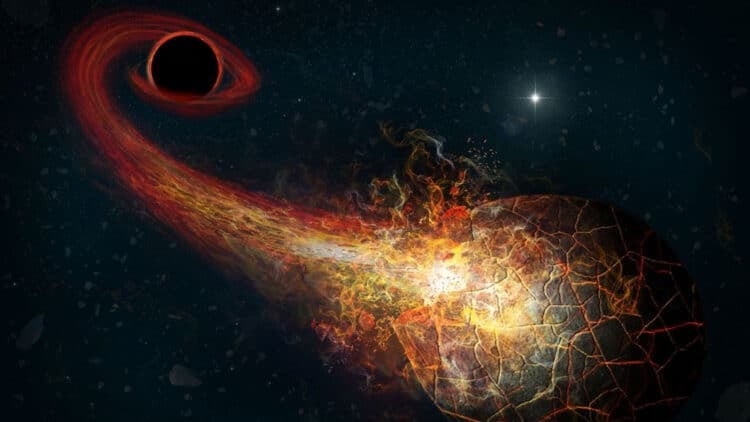(CLO) Over the years, scientists and astronomers have put forward countless hypotheses and speculations about the existence of a ninth planet in the Solar System.
While there has been some progress in confirming the existence of Planet Nine, much remains unclear, especially since some researchers believe the planet could be a primordial black hole.
The strange orbits of several small objects beyond Neptune, which appear to be influenced by an unknown large planet, have led to theories about a ninth planet. However, only recently have scientists come up with a surprising answer: the so-called ninth planet may not be a real planet at all. So what is it?

Illustration: Space
Planet Nine's Supporting Data: More Than a Theory
Studies of the Solar System have made significant progress, from identifying the Sun as the center of the system to discovering distant planets such as Uranus and Neptune.
Strange orbital patterns seen in the Kuiper Belt have sparked the idea of a ninth planet. The gravitational pull of something massive, too large to be explained by the known planets in the Solar System, seems to be responsible for the clusters of frozen objects. Scientists have hypothesized the existence of a distant ninth planet due to this gravitational anomaly.
According to current models, if Planet Nine does exist, it would be 20 times farther from the Sun than Neptune and have a mass five to 10 times that of Earth. Its discovery could explain the unusual tilt of the Solar System’s axis in addition to anomalies in the Kuiper Belt. However, without direct observations, the nature of the object remains a mystery.
The hypothesis of primordial black holes
A team of Harvard scientists recently proposed a new method for determining whether Planet Nine is a primordial black hole. The method would look for signs of unusual outbursts caused by the black hole devouring comets or other distant objects. They hope that the Vera C. Rubin Observatory in Chile, which will begin scanning the southern sky in the next 10 years, will help detect such events.
The primordial black hole theory offers a disturbing idea: Planet Nine may not be a planet at all, but a black hole. These black holes, thought to have formed shortly after the Big Bang, are much smaller than those created by collapsing stars, but are enormously massive.
If Planet Nine does exist, or even if it is a primordial black hole, it would have far-reaching implications for astronomy. The discovery would not only help us better understand the formation of our solar system, but could also provide clues about dark matter, one of the universe's greatest mysteries.
However, the discovery of a small black hole in the Solar System also raises questions about its long-term gravitational effects, which could affect planets and objects in the Solar System.
While it is not yet possible to draw a final conclusion about the existence of Planet Nine or primordial black holes, these studies will certainly be an important part of exploring the universe. Continuing research and updating new findings will help to better understand the Solar System and the strange phenomena out there.
Ngoc Anh (according to eldiario24, Space)
Source: https://www.congluan.vn/hanh-tinh-thu-9-trong-he-mat-troi-cac-chuyen-gia-dang-kinh-hai-khi-phat-hien-ve-no-post328365.html






![[Photo] Prime Minister Pham Minh Chinh chairs conference on anti-smuggling, trade fraud, and counterfeit goods](https://vphoto.vietnam.vn/thumb/1200x675/vietnam/resource/IMAGE/2025/5/14/6cd67667e99e4248b7d4f587fd21e37c)





























































































Comment (0)